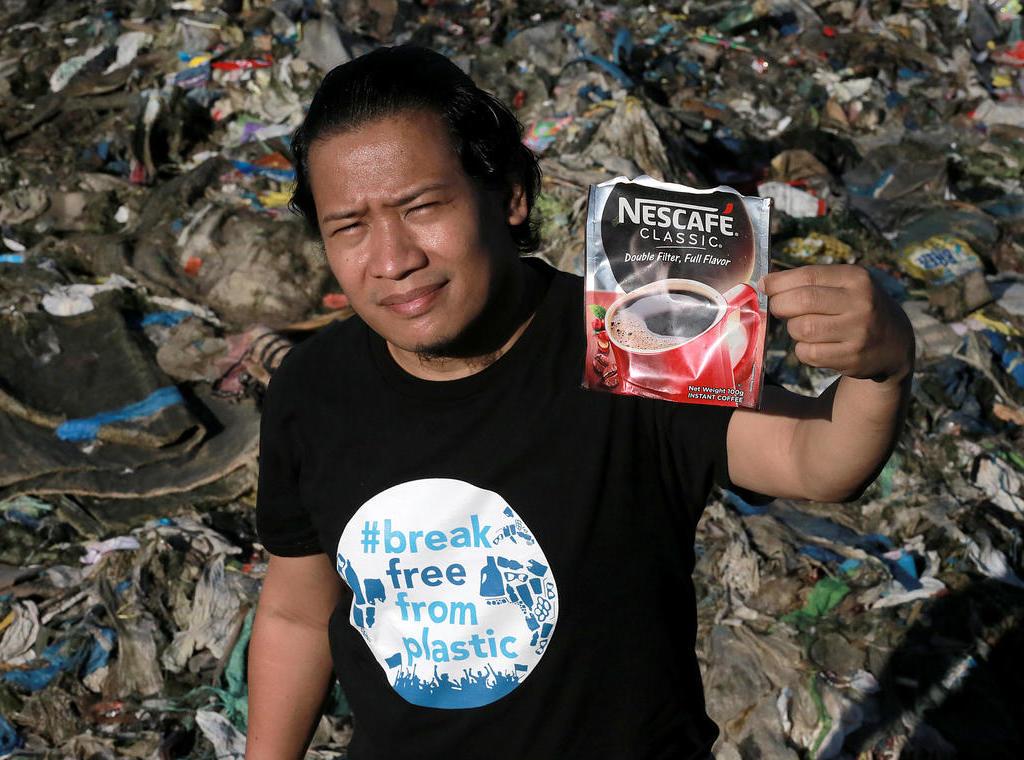Naming & Shaming: How One Filipino Plastic Activist Got Nestle & Unilever To Agree To Change
3 Mins Read
Anti-plastic crusader and community activist Froilan Grate has dedicated his life to fighting plastic pollution on the shorelines of his native Philippines, known to be the third worst ocean polluter in the world. After years of leading local initiatives to improve recycling awareness and waste organisation, Grate began calling out companies to pressure manufacturers for real change.
Grate and his team at The Mother Earth Foundation focus on tackling the plastic waste landing on Filipino shores by helping cities implement low to no-waste management systems. Their local initiatives work on collecting plastic waste, removing it to landfill sites and sorting recyclable waste. They also provide solutions for composting and recycling, and establish plastic bans. On top of tackling environmental issues, he is also able to offer jobs to the community. And while he recently shared with the New Yorker that his work in the city of San Fernando helped divert 51,000 tons of plastic from entering landfills or the ocean, Grate found that efforts to clean up the shores were not getting to the root of the issue: the products themselves.
In an interview with NPR, he said: “You realise that despite everything you do, you really aren’t solving the problem… The problem is that most companies… feel their responsibility ends the moment they sell it. That’s one of the biggest injustices here.”
Grate and his team decided to take a different approach to the problem. They found that an effective solution was publicly shaming the companies that manufactured each item that was washed up on Filipino shores. Grate’s team begun conducting brand audits to record the names of the brands they found, and publicised the data they collected listing the parent companies of the brands responsible for the most pollution.
Amongst the largest polluters were brands owned by behemoths such as Nestle, were accounting for 16.74%, Unilever at 10.82% and Procter & Gamble at 7.19%. According to a recent 2017 Greenpeace report, “developing countries, such as the Philippines, run on a ‘sachet economy’, which encourages the practice of buying Fast Moving Consumer Goods (FMCGs) in small quantities. This drives market and profit share for most companies by making it more accessible to people with limited incomes.” Most of these sachets are manufactured by Nestle, Unliver and P&G. They all come in single-use, non-recyclable packaging, and the vast majority end up as marine pollution.
This tactic appeared to work. After Grate was invited to a meeting with the heads of companies that were called out for pollution in Washington D.C., the multinationals signed up to the Loop Project, an ambitious Franco-US effort to create a circular distribution channel for FMCG products that involves manufacturers committing to refillable containers for some of their range. Brands that are part of the the Loop’s pilot include Crest, Pampers, Tropicana, Tide and Pantene, among many others.
Grate’s story demonstrates that consumers can and do make a difference. Whether it is through social media or publicly voicing our concerns, we all have the power to pressure the companies we give our dollars to, we must demand that they do more and better for the environment.
Lead image courtesy of Greenpeace.




